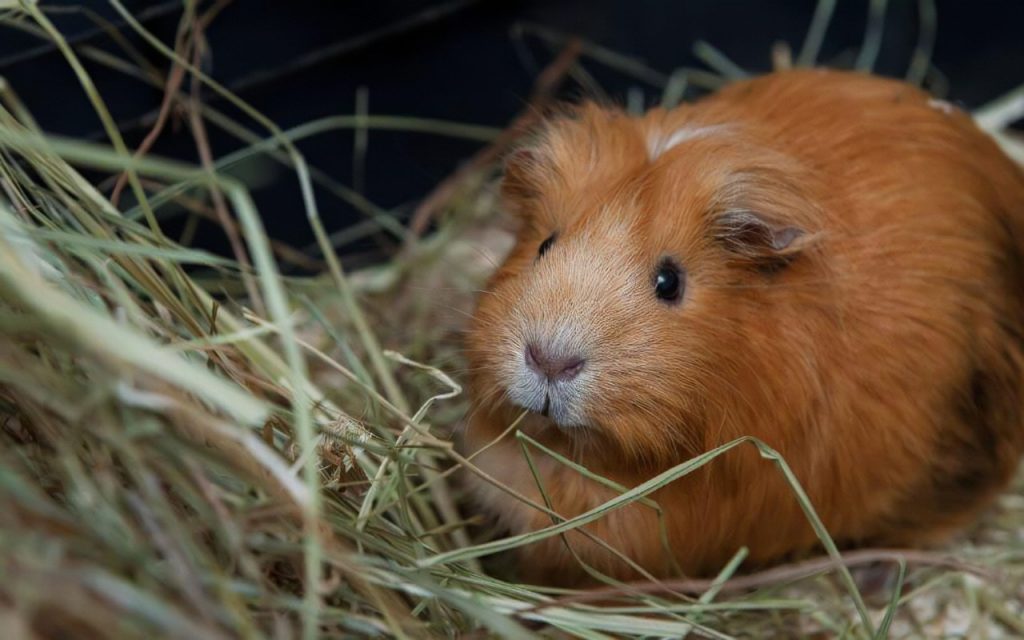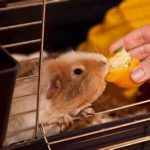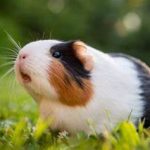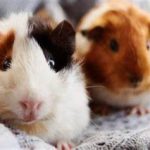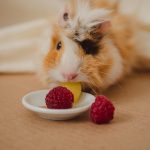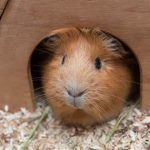Do you have a guinea pig as a pet? Can they eat hay? Yes, they can! Hay is an essential part of their diet. It provides them with essential nutrients and keeps their teeth healthy. However, not all hay is created equal.
In this blog post, we’ll explore everything you need to know about feeding hay to your guinea pig. We’ll cover the different types of hay, how much they need each day, and tips for selecting the best quality hay for your pet.
Plus, we’ll discuss common mistakes people make when feeding their guinea pigs and answer some frequently asked questions.
By the end of this post, you’ll be ready to ensure your guinea pig gets all the nutrition it needs from its daily diet of hay. Let’s get started.
Can Guinea Pigs Eat Hay?
Contents
You’ll be happy to know that hay is an important part of their diet! Hay provides essential vitamins and minerals and helps keep their teeth healthy.
Plus, guinea pigs love to eat it. There are several types of hay that are safe for them, such as timothy hay, oat hay, and meadow hay.
So don’t forget to give your guinea pig some delicious hay every day; they’ll thank you for it.
Feeding your guinea pig hay is an easy way to make sure they stay healthy and happy.
What Types Of Hay Can Guinea Pigs Eat?
Are you wondering what types of hay guinea pigs can eat? Hay is an important part of a guinea pig’s diet, so it’s important to know the different types available and their benefits.
Timothy hay is the most popular type for guinea pigs. It’s high in fiber and low in calcium and protein, making it ideal for keeping their digestive systems healthy.
Oat hay is also great as it contains lots of fiber, which helps keep teeth trim. Brome hay has a milder flavor than other grass hays, which some guinea pigs may prefer.
Alfalfa hay should only be given to young guinea pigs or pregnant or nursing females as it is high in calcium and protein, which can lead to health problems if consumed in large amounts by adult guinea pigs.
Do Guinea Pigs Like To Eat Hay?
Hay is a great source of nutrition for guinea pigs, packed with essential vitamins, minerals, and fiber. Plus, it helps keep their teeth healthy by providing something to chew on.
Guinea pigs have an instinctive love for hay, and they’ll enjoy exploring the variety of tastes, textures, and smells it offers.
You might not find them munching away at the hay all day long, but they’ll definitely nibble at it throughout the day.
Health Benefits Of Feeding Hay To Guinea Pigs
Not only is hay full of essential nutrients and vitamins, but it can also provide numerous health benefits. Here are five reasons why you should feed hay to your guinea pig:
1. Healthy Teeth: Hay helps wear down your pet’s teeth and prevents them from overgrowing.
2. Digestive Health: It can help regulate your guinea pig’s digestion and keep them regular.
3. Hydration: Hay contains a large amount of water, which helps keep your pet hydrated.
4. Hairballs: The fiber in hay reduces the risk of hairballs forming in your guinea pig’s stomachs.
5. Essential Vitamins and Minerals: Eating hay provides your guinea pig with essential vitamins and minerals they need for good health, such as Vitamin A, Vitamin D, Calcium, Iron, Magnesium, and Potassium.
Feeding hay to your guinea pig is not only great for their health; it can also help reduce boredom by providing something for them to chew on and play with! So make sure you give your furry friend the best care possible by providing them with plenty of fresh hay every day!
The Risks Of Feeding Hay To Guinea Pigs
Feeding hay to your guinea pig can be a great way to provide them with essential nutrition, but it also comes with risks. Choking and intestinal blockages are two potential dangers of feeding hay to guinea pigs.
To avoid these issues, make sure the hay is cut into small pieces and free from dust or debris. Overfeeding can also lead to obesity and other health problems, so feed your pet in moderation.
Hay can also contain parasites, bacteria, and other contaminants that could be harmful to your guinea pig. Always check that the hay is fresh and free from mold before feeding it to your pet.
Additionally, never feed hay that has been treated with pesticides or herbicides, as this could cause serious health issues.
How Much And How Often Should You Feed Your Guinea Pig Hay?
Having a guinea pig is a lot of fun, but it’s important to make sure they get enough hay in their diet. Hay is an essential part of a guinea pig’s diet and provides them with the essential nutrients they need.
How much and how often should you feed your guinea pig hay? Generally, an adult guinea pig needs about 1/4 cup of hay per day. Younger guinea pigs may need more.
It’s recommended that you feed your guinea pig hay twice a day, but if your pet is particularly active or has a larger appetite, you may need to feed them more often.
It’s important to monitor your pet’s hay intake and adjust the amount accordingly; if they are eating too much or too little hay, contact a vet for advice. Hay should always be available to your guinea pig, especially during the day.
Make sure to replace old hay with fresh hay every few days to prevent spoilage and contamination.
Different Types Of Hay For Guinea Pigs
There are many types of hay available for guinea pigs, each with its own unique benefits. Here’s a look at the different types of hay and how they can benefit your pet:
Timothy Hay is the most popular type of guinea pig. It’s high in fiber and low in calories, providing essential vitamins and nutrients.
Orchard Grass has protein and fiber plus a sweet taste that many guinea pigs love!
Oat hay is also high in fiber and has a sweet flavor that your pet will enjoy. Plus, it provides essential vitamins and minerals.
Meadow hay is rich in calcium, which helps promote strong bones and teeth in guinea pigs. It also keeps their digestive system running smoothly.
Alfalfa hay is packed with protein, calcium, vitamins, and minerals that are important for your pet’s health. However, it should only be given to adult guinea pigs, as it can be too rich for younger ones.
Finally, brome hay contains fiber as well as vitamins A, D, E, K, and B complex, which are all beneficial for your pet’s health.
No matter which type of hay you choose for your guinea pig, make sure to provide plenty of fresh water too.
Tips On Purchasing Quality Hay For Your Pet
Hay is an important part of your pet’s diet, so it’s essential to buy the best-quality hay you can find. Here are some helpful tips to ensure you get the best hay for your pet.
Start by buying hay from a reputable source. This way, you can be sure that the hay is fresh and of good quality.
When selecting hay, look for color, texture, and smell. Fresh hay should be green in color and have a sweet smell. It should also feel soft and not too dry or dusty.
There are different types of hay available, such as Timothy, alfalfa, and orchard grass. Each type has its own benefits, so make sure to research which type is best for your pet before making a purchase.
It’s also important to store your hay correctly to avoid contamination or spoilage. Keep it in an airtight container away from moisture and direct sunlight.
Organic hay is another option if you want to provide the highest quality food for your pet guinea pig. Organic hay is free from pesticides and other chemicals that may be harmful to your pet’s health.
However, it can be more expensive than non-organic options, so make sure you get the best value for your money when buying organic hay.
Conclusion
In conclusion, hay is an important part of a guinea pig’s diet. It provides essential vitamins and minerals and helps keep their teeth healthy. Timothy hay, oat hay, meadow hay, and alfalfa hay are all safe for them to eat.
However, it’s important to take the necessary precautions when feeding your guinea pig hay.
Make sure the pieces are small enough to avoid choking or intestinal blockages, and check that the hay is fresh and free from mold before giving it to your pet. With care and attention, you can safely add hay to their diet.

